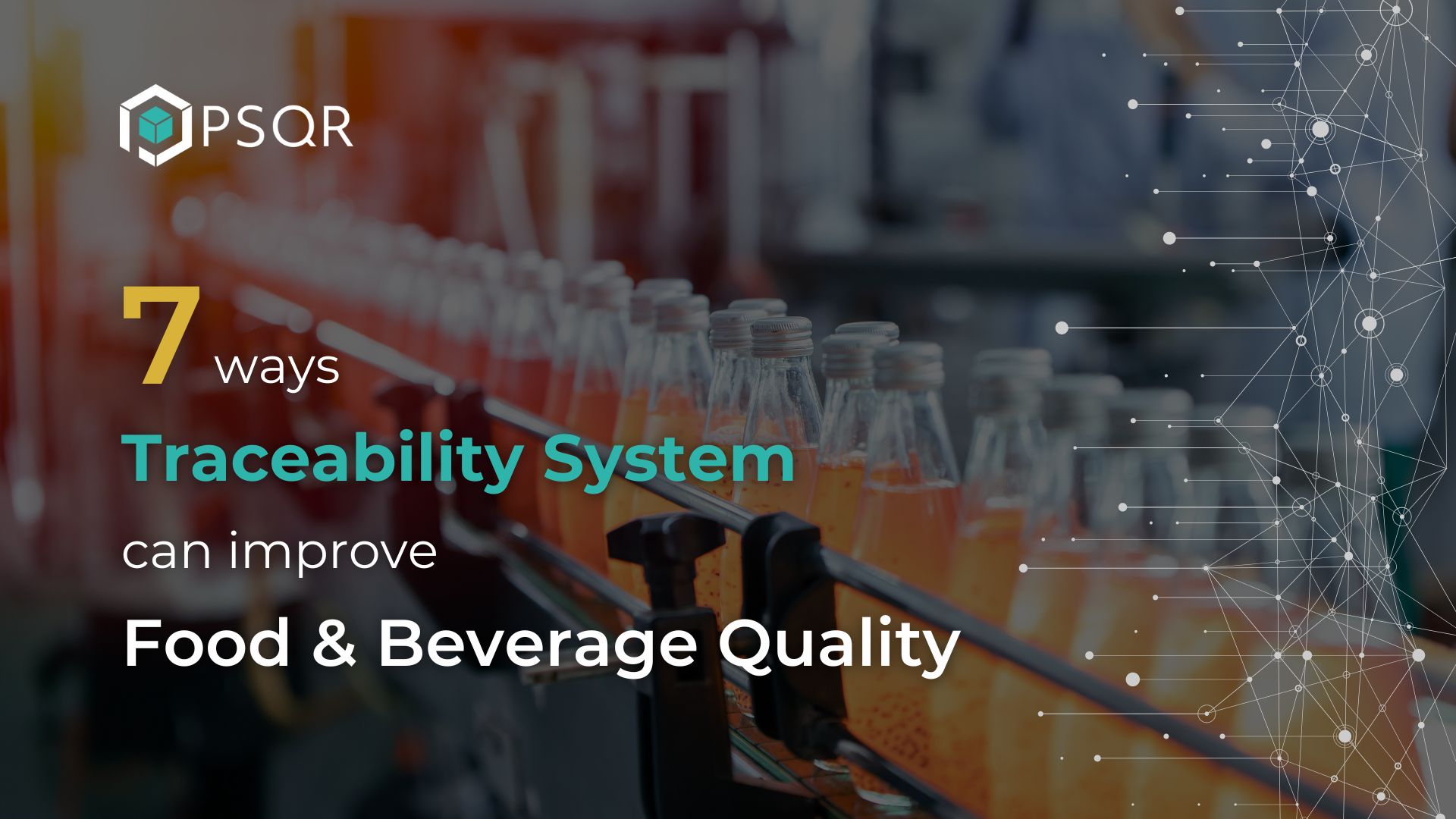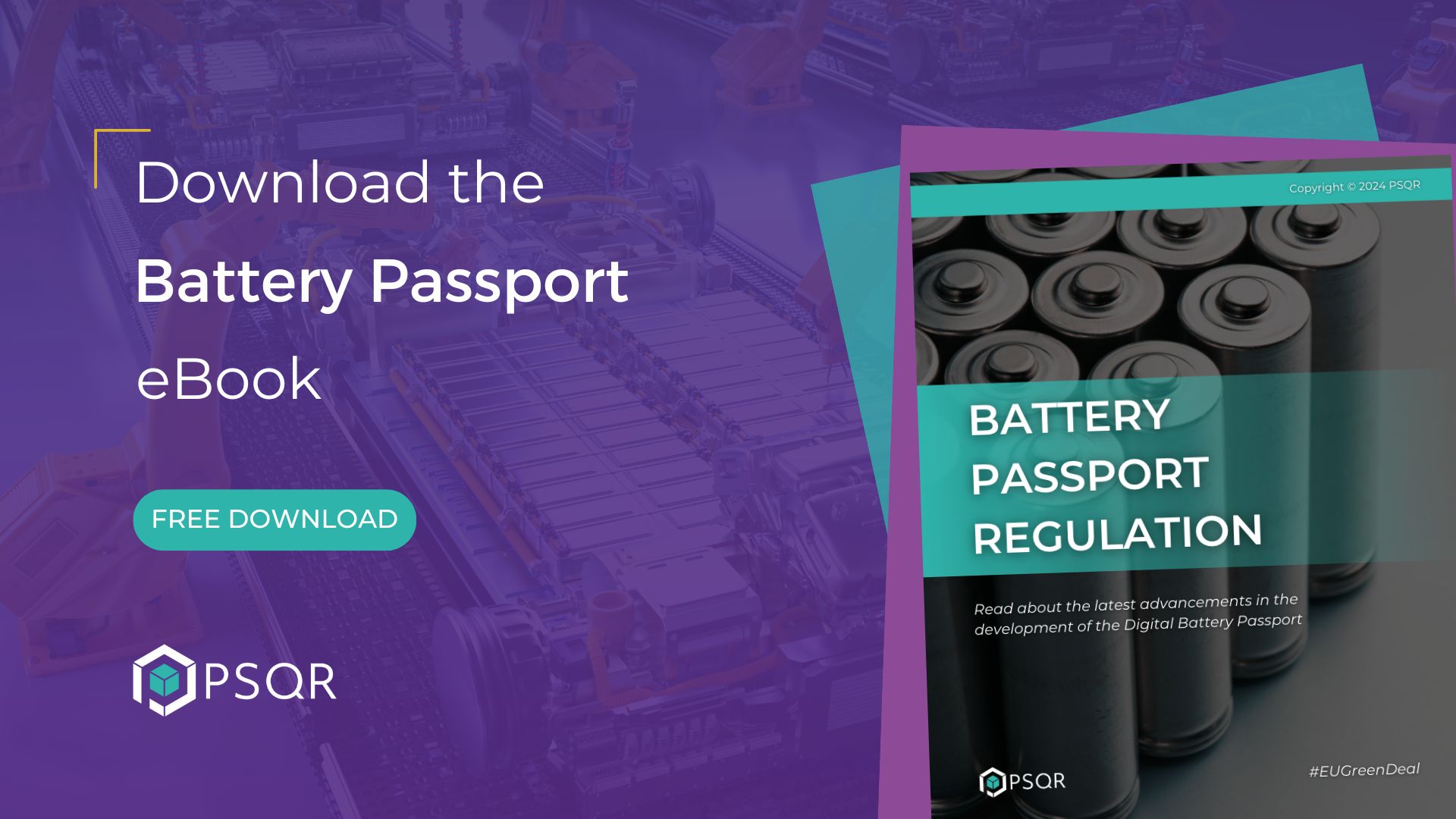In today’s fast-paced food and beverage industry, ensuring product safety, quality, and authenticity is paramount.
Consumers are increasingly demanding transparency about where their food comes from, how it is produced, and what it contains. This demand for information, coupled with regulatory requirements, has made supply chain traceability an essential aspect of modern food and beverage operations.
Supply chain traceability involves tracking the movement of ingredients and finished products through the various production, processing, and distribution stages. It provides the ability to trace an item’s history, application, and location. This capability is crucial for managing recalls, ensuring compliance with safety standards, and maintaining consumer trust.
The state of the food and beverage industry
The food and beverage industries face unique challenges in achieving comprehensive traceability. Complex supply chains involving multiple stakeholders across different regions make it difficult to maintain visibility and control.
Additionally, the perishable nature of many food products requires fast and accurate traceability solutions to prevent spoilage and ensure freshness.
In this article, we will explore the critical role of supply chain traceability in the food and beverage sector. We will discuss the benefits it brings, the obstacles companies must overcome, and the emerging trends shaping the future of food traceability.
Through these insights, we aim to highlight the importance of robust traceability systems in ensuring the integrity and sustainability of the global food supply.
Track and trace system for food & beverage
The food and beverage industry face difficulties and challenges along the supply chain.
Every year, approximately 1.3 billion tons of food is wasted globally. This represents about one-third of all food produced for human consumption. Hence, the companies face economic losses, distribution inefficiencies, and also decreased inventory management.
Similarly, the beverage industry, particularly the alcoholic beverage sector, is becoming increasingly regulated. These regulations often concern the production, distribution, and sale of alcoholic beverages in different countries and regions, affecting supply chain logistics.
To ensure that businesses minimize the challenges, the implementation of supply chain traceability is crucial for several reasons:
1. Food and beverage safety and quality control
Traceability helps in monitoring and maintaining the quality of food and beverage products throughout the supply chain. It ensures that products meet safety standards and regulations, reducing the risk of contamination, spoilage, and foodborne illnesses.
In case of any safety concerns, traceability allows for quick identification and isolation of affected products, minimizing health risks to consumers.

2. Regulatory compliance
Many countries have strict regulations regarding food and beverage quality and safety, including traceability requirements.
Traceability solutions help companies comply with regulations and industry standards, such as the Food Safety Modernization Act (FSMA) in the United States or the Global Food Safety Initiative (GFSI) requirements.
Compliance with these regulations is essential for companies to avoid legal penalties and to operate in international markets.
By maintaining comprehensive records and documentation, businesses can demonstrate compliance during audits and inspections.
3. Consumer trust and transparency
Traceability solutions provide stakeholders, including consumers, with visibility into the entire supply chain, from farm to fork.
This transparency builds trust and confidence in the integrity of products, as consumers can access information about sourcing, production practices, and sustainability initiatives.
As a result, businesses have the possibility to gain a significant competitive advantage in the marketplace.
4. Efficient recall management
In the event of a product recall, traceability solutions enable swift and precise identification of affected batches or lots.
By narrowing down the scope of the recall, companies can minimize financial losses, reputational damage, and disruption to operations.
5. Sustainability and ethical sourcing
Traceability allows companies to verify the ethical and sustainable practices of their suppliers. It ensures that food and beverage products are sourced responsibly, addressing concerns about environmental impact, fair labor practices, and animal welfare.
This is increasingly important as consumers and stakeholders demand greater corporate responsibility.

6. Supply chain optimization
Detailed traceability data helps in optimizing supply chain operations. By tracking products at each stage, companies can identify inefficiencies, reduce waste, and improve overall supply chain performance. This leads to cost savings and more sustainable business practices.
Moreover, traceability systems facilitate real-time monitoring of inventory levels, expiration dates, and stock movement. This data-driven approach allows businesses to optimize inventory management and avoid stockouts or overstock situations.
7. Preventing fraud and counterfeiting
Traceability helps in combating food and beverage fraud and counterfeiting by ensuring that all parts of the supply chain are accountable.
By creating digital twins of each item in the supply chain, traceaiblity solution allows for the verification of product authenticity, protecting both consumers and legitimate businesses from fraudulent activities.
Building integrity with traceability
In summary, supply chain traceability in the food and beverage industry is essential for ensuring food safety, regulatory compliance, consumer trust, efficient recall management, sustainability, supply chain optimization, and preventing fraud.
It supports the overall integrity and efficiency of the food and beverage supply chains, benefiting both businesses and consumers.
Furthermore, there has been an increased consumer demand for transparency and sustainability in food and beverage sourcing and production, driving the need for better supply chain traceability solutions.
Overall, the food and beverage industry is undergoing significant transformations to address these challenges, with a focus on innovation, sustainability, and improved supply chain resilience.
If you’d like to learn more about how PSQR’s traceability solution can help you optimize your supply chain, don’t hesitate to get in touch.





